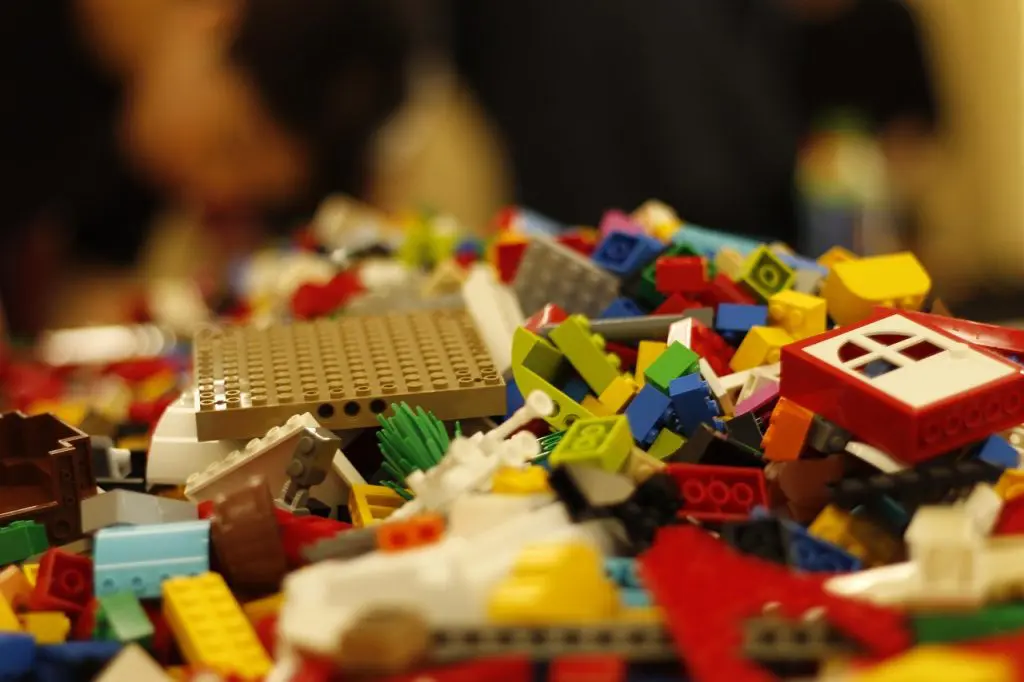
LEGO and WWF Partner to Inspire Sustainability in Play with New Planet Promise Design Guidelines The LEGO Group, in collaboration with WWF Denmark, has unveiled its Planet Promise Design Guidelines — a new creative framework to help LEGO designers integrate sustainability and social responsibility into stories, products, and packaging. The initiative aims to empower children […]
The LEGO Group, in collaboration with WWF Denmark, has unveiled its Planet Promise Design Guidelines — a new creative framework to help LEGO designers integrate sustainability and social responsibility into stories, products, and packaging. The initiative aims to empower children to imagine a better, greener future through play.
Developed with input from WWF experts across the US, UK, China, Germany, and Denmark, the guidelines will initially be applied to LEGO-owned themes and serve as a blueprint for embedding environmental values into the LEGO play experience.
The guidelines are part of LEGO’s broader Planet Promise — the company’s long-term commitment to environmental and social responsibility. According to LEGO’s recent Play Well Study 2024, 83% of children aged 5–12 care about protecting the environment, and 94% of parents believe play is a powerful way to teach kids about sustainability.
“We know LEGO play is a powerful and engaging tool for children to make sense of the world around them,” said Annette Stube, Chief Sustainability Officer at the LEGO Group. “The new guidelines will allow us to continue helping children imagine what the world could look like through our products, inspiring them to think creatively about the world they will inherit.”
The new Planet Promise Design Guidelines include two key components:
Planet Promise Design Principles – High-level values and educational content designed to help LEGO designers understand environmental and social issues related to nature, communities, energy, and resource use.
Planet Promise Design Guides – Providing LEGO designers with essential information and guidance relevant to the experience they are creating.
These tools aim to reflect important sustainability topics such as biodiversity, renewable energy, conservation, and responsible resource use in LEGO’s storytelling and set design.
The LEGO Group has been working with WWF since 2014 as part of its participation in the WWF Climate Savers Program, aimed at reducing carbon emissions and promoting environmental awareness. This collaboration has helped LEGO set ambitious climate targets and explore more sustainable materials and production methods.
Jacob Fjalland, Interdisciplinary Director at WWF Denmark, said, “We are delighted to partner with the LEGO Group on this new set of guidance to inspire and engage children around the world and make room for curiosity on nature and climate matters and how to take good care of our planet. We know firsthand how important education on nature and climate matters is, and as the world’s largest environmental organisation WWF aims to inspire hope and motivation in children and young people helping to shape a generation of optimistic and proactive young individuals.”
LEGO’s Planet Promise Design Guidelines are more than just a storytelling framework—they represent a subtle but meaningful contribution to the circular economy, a model that prioritises reuse, resource efficiency, and waste reduction. By embedding sustainability principles directly into the creative and design process, LEGO is aligning its products with the circular economy in three key ways:
One of the foundational principles of the circular economy is extending product life—and LEGO bricks are inherently durable, reusable, and often passed down through generations. The new guidelines strengthen this principle by encouraging designers to create narratives and builds that promote repair, repurposing, and resourcefulness. Storylines may increasingly feature ideas such as mending broken ecosystems, reusing materials, or constructing solutions that model circularity for young builders.
The Planet Promise Design Principles include themes like responsible resource use, renewable energy, and community resilience. By integrating these ideas into sets, LEGO introduces children to the value of circular thinking—not through lectures, but through playable worlds where sustainable choices become part of the story. For example, a LEGO city might include solar panels, recycling centres, or community gardens—all reinforcing circular behaviours as aspirational and imaginative.
While the new guidelines focus on design and narrative, they complement LEGO’s wider material strategy—testing alternative, more sustainable materials for bricks and packaging. This push supports a key pillar of the circular economy: decoupling resource use from growth. The company’s research into bio-based plastics and recycled content reflects a long-term shift toward more regenerative product lifecycles.
This initiative builds on LEGO’s broader environmental strategy, which includes:
Reducing carbon emissions in its operations.
Exploring sustainable materials — the company has tested over 600 material alternatives for its iconic bricks.
Increasing the use of renewable energy and recyclable packaging.
While the Planet Promise Design Guidelines focus primarily on storytelling and design, they are one piece of LEGO’s multi-pronged approach to building a better planet — block by block.
By aligning its creative storytelling with sustainability values, LEGO is not just reducing its environmental footprint — it’s influencing how the next generation understands and acts on climate challenges. Through this partnership with WWF and the introduction of the Planet Promise Design Guidelines, LEGO is reinforcing its role as a leader in responsible play.
At All-Ireland Sustainability, we’re committed to building a greener, fairer island—together. Stay informed on the latest environmental initiatives, community action, and policy developments shaping sustainability across Ireland, North and South.
👉 Sign up for our newsletter today and be the first to hear about upcoming events, expert insights, and ways to get involved.
Whether you’re a seasoned advocate or just starting your journey, new members are always welcome—your voice matters.
Subscribe now and be part of the All-Ireland Sustainability network.